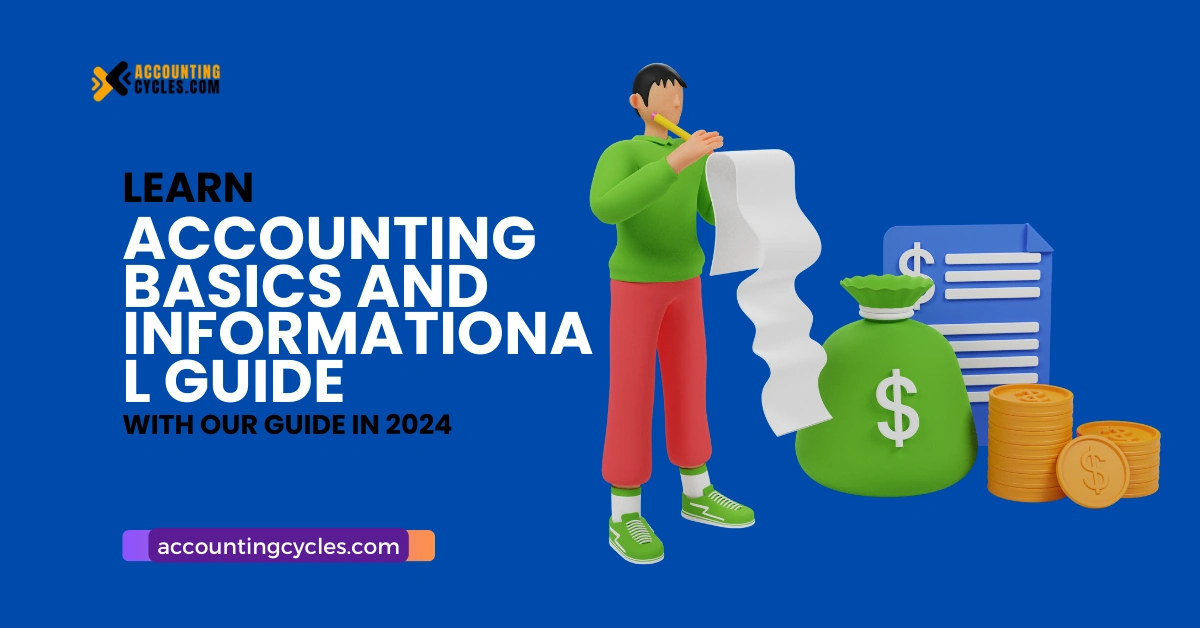History of Accountants
Accounting is believed to have evolved alongside writing, counting, and money thousands of years ago in Mesopotamia, the birthplace of civilization. Early Egyptians and Babylonians developed auditing methods, and the Romans gathered comprehensive financial data. what is an accountant and what do they do?
During the Industrial Revolution, accounting became a more significant profession. This was mostly brought about by the complexity of business operations growing and the need of bondholders and shareholders—who were not employees of the company but had made financial investments to learn more about the health of the businesses in which they had placed their money.
Following the Great Depression and the establishment of the Securities and Exchange Commission (SEC), reports authored by certified accountants were mandatory for all publicly traded corporations. Corporate accountants are now much more necessary as a result of this development. Accountants are still an essential and commonplace component of any organization today.
Introduction
Your tiny firm is expanding, then. So far, you've been paying your bills and maintaining the bank account, but now that your business is growing, sales are starting to increase. However, expansion entails additional duties related to the less enjoyable aspects of your company. Maybe it’s time to call an accountant.
A professional who carries out accounting tasks like account analysis, auditing, or financial statement analysis is referred to as an accountant. Accountants are employed by large corporations in internal accounting departments or by accounting firms.
National professional associations certify these professions after they fulfil state-specific standards for education and examination. Put differently, accountants are your go-to financial superheroes. One of the greatest methods to ensure that your small business's accounts are correct from the beginning is to hire an accountant.
Comprehending the Profession “Accountant”
Financial experts known as accountants oversee several accounts, both public and private. These accounts could be held by people or by a corporation. As a result, they could be able to find employment with governments, corporations of various kinds, non-profits, or even start their private practice and help clients on a case-by-case basis.
They carry out a variety of accounting tasks, depending on their workplace. Accountants analyze accounts, check the accuracy of financial statements, documents, and other reports, audit financial operations on a regular and annual basis, prepare tax returns, offer advice on areas that need more cost- and efficiency-cutting, and forecast and analyze risks.

The responsibilities of an accountant are frequently determined by their educational background and title. The majority of experts in the industry hold bachelor's degrees, and if they work for a corporation, they might need to get certified to advance in the organization. The prerequisites for certification differ depending on the profession; some demand a bachelor's degree and some extra schooling, while others only require passing difficult exams.
Accountants can have multiple designations. However, the Certified Public Accountant (CPA), Certified Management Accountant (CMA), and Certified Internal Auditor (CIA) are the most widely held accounting credentials. Neither Certified Management Accountants nor Certified Internal Auditors require a license to operate.
Skills of an Accountant
Let's start by discussing the abilities of accountants before moving on to what they can achieve for your company. The majority of accounting job descriptions will list the following essential competencies.
Mathematics and Financial Analytics
Not a subject that appeals to everyone. We also don't want to imply that accountants have to be a math's genius, just proficient in the subject. A solid background in math and statistics is essential for accountants, as they handle significant financial data daily.
Computer Savviness
Pen and paper bookkeeping is a thing of the past. Modern accounting software is used by accountants. Thus, yes, they ought to be familiar with computers and open to picking up new skills.
Business Knowledge
Beyond just crunching statistics, good accountants do more. They examine those figures in the same manner that you, as a business owner, would. This implies that they can assist you with the strategic side of your corporation by using what they observe.
Communication
Communication is essential in any professional relationship, as well. To ensure that owners and employees can comprehend and utilize complicated financial information, an accountant must be able to simplify it.
Attention to Detail
When dealing with accounts, accountants must pay close attention to every last detail—down to the last penny. Tiny mistakes can have a large impact.
Responsibilities of an Accountant?
- Advise on business structure:
Do you have an LLC or a sole proprietorship setup for your small business? What distinguishes one from the other, and what are the advantages? An accountant can help you get on the correct track by managing the paperwork and pointing the ship in the right direction.
- Help create business protocols:
For a firm to run properly, certain procedures must be followed. You can't be certain that tasks like shipping, receiving, and billing are completed correctly without these procedures. You can collaborate with an accountant to ensure that everything is operating as it should.
- Issue invoices:
Since your company needs to turn a profit, you must ensure that you are billing and collecting from clients on time and with expertise. To ensure you get paid, an accountant can draft and submit bills to your clients.
- Track invoices:
Although invoices were sent, are they paid as well? It's simple to get sidetracked, particularly when your company expands and your clientele increases. You can determine how much cash you have on hand and whether you need to send late notices by having your accountant keep track of who has paid and who hasn't.
- Keep a Record of Sales:
You must be aware of what you are selling, how much you are selling, and how much money you are making if you want your business to prosper. To help you stay informed about the state of your small business, an accountant can monitor sales data and generate frequent reports. In this manner, you'll be aware of your top-selling items, items to phase out, and the amount of inventory you'll need for the following month.
- Manage and pay invoices from suppliers:
The more products you need to run your firm, the larger it will grow. For you to know how profitable your business is, your accountant will pay your suppliers and maintain track of those expenses for tax purposes.
- Handle Payroll:
What was the amount of hours your helper put in last month? What was their salary? An accountant can determine how much to withhold for quarterly payroll taxes, compute the compensation of your team members, and ensure that all the paperwork is completed correctly.
- Prepare your tax return:
Isn't it difficult to mention taxes without worrying? particularly for a tiny company. However, you must file your taxes, and more significantly, you must file them correctly. Your tax return can be prepared with the assistance of an accountant, who will ensure that it is timely and accurate.
- Keep you up to date with tax law:
About taxes, isn't tax law complicated? An accountant can assist you in navigating complex tax rules and ensuring that your company complies with existing regulations.
- Create timely financial reports:
How effective is your company running? How much cash do you need to maintain in reserves? All of the reports you require to make the best financial decisions for your company will be produced by an accountant.
What Are the Types of Accountants?
Accountant responsibilities come in all shapes and sizes, but here are a few types of accountants and the differences between them.

Bookkeeper:
Not all bookkeepers are accountants, but all accountants can be bookkeepers. Bookkeepers take care of a lot of tasks for your company, such as weekly reporting and bill payment. They are proficient in managing a wide range of financial duties, but they are not obligated to hold the licenses necessary to represent you before the IRS or file your taxes.
Certified Public Accountant (CPA):
CPAs cannot obtain a state license until they have passed an exam and fulfilled a few other prerequisites. After becoming a certified public accountant (CPA), a person is qualified to prepare and sign tax returns for both individuals and corporations. They can also represent taxpayers in IRS audits.
Certified Management Accountant (CMA):
CMAs can work in the public, private, and government sectors. They frequently hold leadership positions where they use financial data to support risk management, budgeting, and corporate planning. A group of accountants that handle routine accounting tasks can be managed by CMAs as well.
Private Accountant:
Usually, a private accountant works with just one business. In exchange for performing basic accounting tasks and preparing reports for a Certified Public Accountant to evaluate, they are employed as a team member and given pay.
Enrolled Agent (EA):
Enrolled Agents must pass a comprehensive exam covering a wide range of corporate and individual tax regulations. To maintain their license, they must also complete 72 hours of continuing education every three years. Consider EAs to be the elite members of the accounting community. They can represent your company in IRS tax audits and have unrestricted practicing rights.
Forensic Accountant:
A forensic accountant is an expert in sorting through financial records to look into cases that may involve fraud or other legal issues. To detect and stop fraud, they can collaborate with the government, big accounting firms, and private companies.
Advantages:
Accountants Have a Better Understanding of Finances
Accounting professionals acquire the kind of expertise that many people are willing to pay for after years of studying the art of managing money.
Employers would gain a great deal from hiring applicants with these skill sets because they are transferable to all work professions. Financial planners, investment managers, banking professionals, and other professionals can benefit from having accounting expertise.
The Growing Demand for Accountants
Accounting can be seen as one of the main engines of our economy since it involves handling money. To manage their finances, all business needs at least one accounting specialist; huge companies sometimes have accounting departments with hundreds of staff members spread throughout offices across the globe.
It is reasonable to predict that there will be a substantial need for accountants for the rest of the twenty-first century and beyond.
Accountants' Salary Ranges Are Competitive
Accountants usually start their careers at attractive income levels due to the nature of their profession.
Depending on one's geographic area and whether the business is publicly traded, privately held, or run by the government, the wage ranges may change. It's also possible that larger cities offer higher-paying employment.
The Ability to Start Your Own Business
Accounting experts frequently go on to start their businesses; this typically occurs after years of work experience and a solid network of business contacts. After years of networking, accountants might feel more at ease using their relationships to launch their own company. When it comes to financial matters, there are countless possibilities, including consultation and tax accounting.
Conclusion
Accountants are the basic need of any organization. We live in a digital world, where businesses have grown vastly. A large number of financial transactions take place simultaneously. Therefore, to keep a proper and intact record, an accountant must be hired.
Hiring an experienced accountant will be a sigh of relief for the owners. As the owners can count on an accountant for their financial matters. Accountants can help in various matters due to their vast experience in managing financial resources. Although it will cost the owner a fortune to hire an experienced professional but in today's world it is worth it.
Frequently Asked Questions
- Who is the father of accounting?
Although the history of accounting dates back to the 13th century, the first bookkeeping reserve, Suma de Arithmetica, Geometria, Proprtioni et Proportionalita, was published in Venice in 1494 by Fra Luca Pacioli, who is regarded as the "Father of Accounting."
- Who is the king of accounting?
The ledger is called the king of all books of accounts because all entries from the books of original entries must be posted to the various accounts in the ledger.
- Who is called an accountant?
A professional who carries out accounting tasks like auditing, financial statement analysis, and account analysis is known as an accountant. Accountants have the option of starting their practice or working for a big organization with an internal accounting department or accounting firm.
- Is it easy to work as an accountant?
Accounting isn't always easy; there are times when you have to look hard for information, piece it together, and find hidden financial details—especially when you're doing an audit or complicated tax computations. If you like solving puzzles, this might be the ideal position for you.
- How much salary does an accountant earn?
Accountants are paid heavily according to the services they provide to a firm. It is always crucial for a firm to hire an accountant because of the nature of the work that is required from the accountant.





